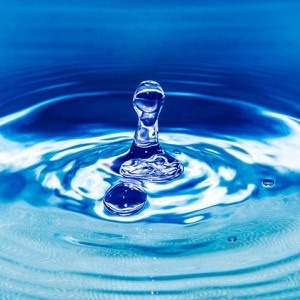
“Stay hydrated!”
It’s a phrase you've likely heard countless times from physicians, dietitians, coaches, and even your mom. Although this is sound advice, it's often easier said than done. As a dietitian, I provide hydration goals for individuals. But it's not so cut and dry for everyone. The amount of water you should drink depends on a variety of elements, making a seemingly simple request turn into a somewhat complex response. Let's break it down.
What about that 8 x 8 rule?
You've probably heard the commonly accepted recommendation for eight, 8-ounce (236.58ml) glasses of water per day. My take: This a good place for the average, healthy person to begin, so go with it. However, the Institute of Medicine of the National Academies suggests a total water goal – including all beverages and food – by aiming for 91 ounces (2.7l) for women and 125 ounces (3.7l) for men each day. Although this seems like a significantly greater volume of water than the 8x8 guideline, ultimately, it is important to remember that this recommendation includes total water consumption.
In other words, many of the beverages and foods we consume contribute to this daily goal, including coffee, tea, juice, milk, fruits and vegetables, to name just a few. While an estimated 20 percent of your water intake can come from food, the rest should be from liquids. (It's important to keep sweetened beverages at a minimum and focus on fluid intake mostly from unsweetened beverages, like sparkling water, unsweetened tea or good old H2O.)
So, what might affect my #watergoals?
- Your exercise habits. Beyond the baseline recommendation, exercise also plays a big role in your hydration needs. As a general rule, any activity that produces sweat requires fluid replenishment. For the average exerciser, this means drinking water before, during and after a workout, according to your personal thirst cues and energy levels. However, for high-intensity workouts lasting longer than an hour, sports drinks are a more effective way to replenish lost electrolytes.
- Your zip code. Humid climates and high altitudes increase dehydration risk and require additional fluid needs.
- Your well status. Your body loses water during a fever, diarrhoea or vomiting. (Gross, I know, but still necessary to know!) While most mild cases simply require extra water intake, be sure to ask your doctor if additional oral rehydration solutions are necessary.
- Your baby situation. Pregnancy and breastfeeding require increased fluid needs, as adequate hydration can help prevent haemorrhoids, constipation, excessive swelling and urinary tract infections. If you're pregnant, you should drink about 81 ounces (2.4l) of fluids each day, and women who are breastfeeding should increase fluids to about 105 ounces (3.1l) each day. (Moral of the story: Water should be your BFF if you're pregnant or breastfeeding!)
Will water help with weight loss?
Short answer: probably. While drinking enough water is important for your overall health and wellbeing, there are some benefits related to weight management. Drinking water helps you physically fill up space in the stomach and therefore decreases appetite, but staying hydrated also means reduced thirst. This really matters because many of us confuse internal thirst and hunger cues, leading to overconsumption in general. Staying properly hydrated helps you decipher these feelings happening in your body. (Plus, by ditching sweetened beverages, like juice or soda, for water, you’ll automatically decrease overall caloric intake.)
How do I know if I'm not drinking enough water?
Ultimately, the best way to spot dehydration is to pay attention to the warning signs. If you experience any of these, your body might be trying to tell you to drink up:
- Thirst
- Flushed skin
- Increased body temperature
- Rapid breathing or heart rate
- Dizziness
- Weakness
Prefer a more visual indicator? You can tell if you're drinking enough water if your urine is colourless or a very pale yellow. (If it's a bright or dark yellow, that could mean you're lacking H2O.)
Ok, water is clearly awesome, but can I drink too much?
Technically, yes. But it's rare.
Overconsumption of water can lead to dangerously low levels of sodium through
blood dilution, known as hyponatremia. However, most healthy people are not at
risk for this uncommon condition. (Extreme athletes and older adults with
medical complications are more at risk.)
Bottom line: The rule of eight, 8-ounce glasses is a great starting place, but know that fluid needs can be individual so you may want to consult with a dietitian or doctor.
Read more:
Does Drinking Water Really Give You Glowing Skin?
This article was originally published on www.womenshealthmag.
Image credit: iStock




 Publications
Publications
 Partners
Partners










